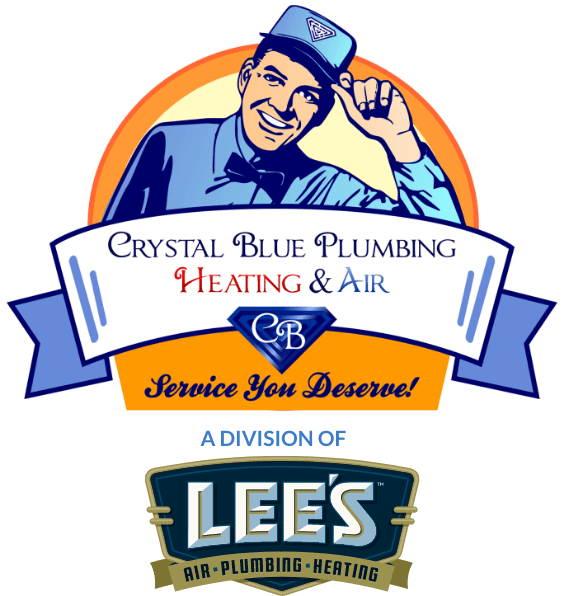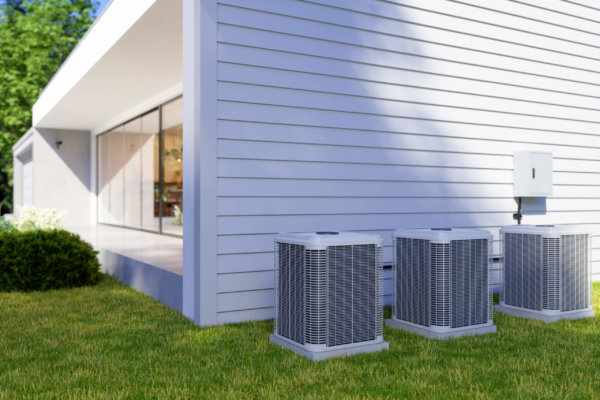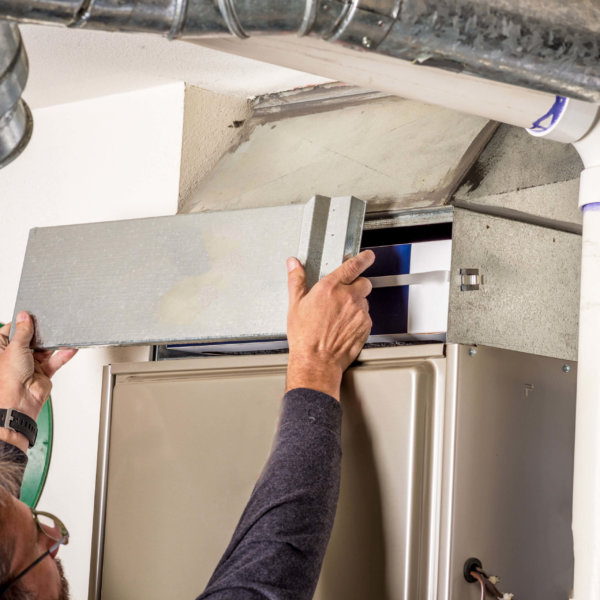Weighing the Pros and Cons of Heat Pump Water Heaters
If you already have a water heater that needs to be replaced or would like to upgrade to a new water heater, one type of system you can have installed in your home is a heat pump water heater. While heat pumps have been used in residential homes since the 1940s, they became increasingly popular in the 2010s because of the boost in energy efficiency. Before you purchase a heat pump water heater for your home, you should know the advantages and disadvantages that come with this type of system.
How Do Heat Pump Water Heaters Work?
Conventional water heaters are designed to use either electricity or gas to produce heat. In comparison, heat pump water heaters use energy to move heat from the air that surrounds the system to the water that’s contained in the unit’s tank. Consider how a refrigerator pushes heat out of the storage compartment. Heat pump water heaters perform the opposite function by pulling in heat from the nearby air. It’s a highly efficient technique that allows a refrigerant fluid to be condensed and evaporated to capture heat.
Selecting the Most Energy-efficient Heat Pump Water Heater
Heat pump water heaters are popular because of their high efficiency as well as the low cost of operation. According to the EPA, heat pump water heaters that have been ENERGY STAR certified provide a lifetime savings of around $3,700, under the belief that the system will last for 13 years.
Pros of a Heat Pump Water Heater
The main benefit of heat pumps is that they are much more energy efficient when compared to traditional water heaters since they don’t use energy to produce new heat. Instead, they will collect ambient warmth before transferring it to the water that needs to be heated. You can save several hundred dollars each year in energy bills when you have this type of system installed.
Heat pump water heaters even offer rebates and ample tax benefits to homeowners. The tax incentives are available through federal programs, while the sales rebates are state-sponsored. Beginning in 2023, you can take advantage of the Energy Efficient Home Improvement Credit, which is worth around 30% of the cost for eligible heat pump water heaters. The maximum credit available for these water heaters amounts to $1,200 per year.
In California, having a heat pump water heater installed in a single-family home allows you to qualify for a rebate of anywhere from $3,000-$6,000, depending on where you live. While the upfront costs for these water heaters are high, the additional expenses could be paid back in the initial year of ownership with the savings you build up.
Heat pump water heaters are also environmentally friendly. They don’t use as much natural gas or electricity as other systems, which keeps greenhouse gas emissions relatively low. If an ENERGY-STAR-certified heat pump water heater were to be installed in place of every electric water heater in the country, annual greenhouse gas emissions would be reduced by 140 billion pounds, which is the same as removing 13 million vehicles from the road.
You’ll discover that a heat pump water heater doesn’t require as much maintenance as traditional gas systems. While all system components should be examined once every year, these water heaters have a relatively basic design that allows repair work to be kept to a minimum. Since heat pump water heaters don’t rely on combustion, they are also safer to operate.
It’s also possible for heat pump water heaters to be used in combination with solar photovoltaic systems. In recent years, these solar systems have benefited from a large drop in price. If you have one of these systems installed in your home, the energy that needs to be used by your heat pump water heater can be covered with the energy that’s created by your solar system.
Cons of a Heat Pump Water Heater
The primary concern with heat pump water heaters is that they don’t work as well in colder climates. Since these systems bring in ambient warmth from the surrounding air, this process won’t be as effective if the surrounding air is cold. Certain heat pump water heaters are outfitted with a hybrid system that allows electric water heating to be switched on if the temperatures drop too much for the heat pump to be operational.
Another issue involves the high upfront cost mentioned previously. These appliances usually range from $1,500-$3,000 in price, which is much higher than the $500-$1,000 price of a conventional water heater. While your savings will eventually cover the increased costs, you may not have the budget to make such a purchase.
Keep in mind that the initial cost can be controlled somewhat depending on when you purchase the system. For instance, buying a heat pump water heater during the early winter season could be more expensive because of the higher demand at this time of the year. There’s much less demand for this type of water heater in the spring and summer months.
Heat pump water heaters are oftentimes challenging to install since they require knowledge of local geology, heat flow, and the heating and cooling needs of a home. The installation process for a heat pump water heater depends on where the system needs to be installed. It’s possible that incisions will need to be placed in the home’s siding to make room for an exterior compressor that attaches to the indoor unit.
Even though heat pump water heaters don’t use a high amount of electricity, they do require some electricity to move heat from one area to another. In the event of a power loss, this type of water heater can stop functioning temporarily. This issue can be avoided with the use of a power generator.
One potential problem with heat pump water heaters is the amount of noise they can produce. These systems are outfitted with compressors and fans that emit an ample amount of sound. Where the unit is installed will determine how loud this noise is. If the water heater is installed in a basement, the wall insulation between the basement and the first floor of your home should significantly dampen the noise.
Heat pump water heaters also have considerable space requirements. These systems usually require around 1,000 or more cubic feet of air space in the immediate vicinity, which means that they should be positioned in a ventilated space.
At Crystal Blue Plumbing Heating & Air, we offer a range of services that expand beyond repair and installation for water heaters. We can provide residents of Sacramento, CA with maintenance, repair, and installation services for heaters and air conditioners of all brands and styles. Our plumbing services are exhaustive to accommodate any need that might arise. Along with plumbing repair and water leak detection services, you can also request emergency plumbing services as well as the installation of water treatment systems. Some additional services available at Crystal Blue Plumbing Heating & Air include duct repair and replacement services and indoor air quality services. Call us today to ask about our specials or learn more about the services we provide.








